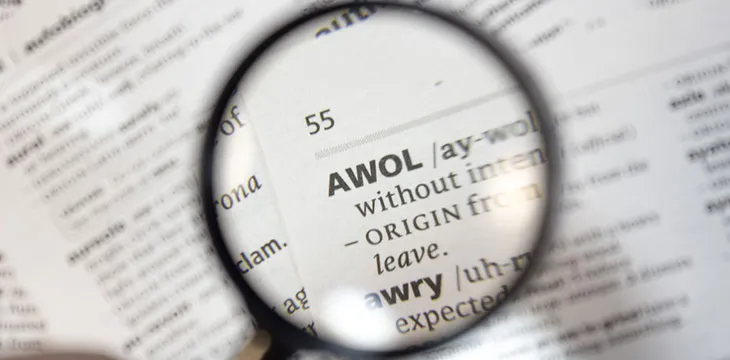|
Getting your Trinity Audio player ready...
|
Phoenix Community Capital, a digital currency firm with links to two all-party parliamentary groups (APPGs) in the U.K. seems to have disappeared, leaving investors potentially as out of pocket as they are out of explanation.
On February 23, the Guardian reported the digital currency investment firm’s apparent disappearance, raising concerns not just for the investors who stand to lose thousands of pounds, but about the role of APPGs in parliament.
Phoenix Community Capital emerged in 2022 as an investment scheme which, according to last week’s report, claimed at one point to be valued at $800 million (£665 million).
Investors bought tokens of a digital currency called “fire,” and 10 tokens earned investors a “nest.” Each nest offered a return of 0.225 fire tokens a day—meaning they would get their original investment back in 45 days and then keep accumulating.
In March 2022, a fire token was worth almost £500 ($605), but the value plummeted in the summer, and by September, the price was down to £0.50 ($0.60) and falling. This was when the company’s website went offline, and the investment portfolios became inaccessible to an estimated 8,000 investors.
The firm’s LinkedIn page still exists and touts Phoenix as “creating Avalanche network’s 1st community-backed crypto asset management fund,” with a mission to “build a transparent and legitimate ecosystem with a big enough table where everyone can eat.”
The now ironically optimistic profile, which last posted six months ago just before the firm went AWOL, lists Eric Marshall and Luke Sullivan as co-founders. The latter is also named as chairman, and his links to parliament are under particular scrutiny.
Parliamentary links
Whilst in his role as chairman of Phoenix, Sullivan spoke at an event for an APPG as well as making several appearances as a panelist for events hosted by peers in parliament. The company itself sponsored another APPG.
APPGs are informal parliamentary groups of peers and MPs who meet to discuss subjects of particular interest. These groups must be chaired by MPs but are frequently run or funded by lobbyists and corporate donors hoping to shape future government policy.
Lobbying is a perennially thorny subject, but since the crash of FTX and the dramatic fall from grace of industry golden boy Sam Bankman-Fried (former CEO of FTX)— who was well known in U.S. lobbying circles and the highest individual donor from the sector to political campaigns—lobbying has been in the spotlight.
In the U.K. the Phoenix Community Capital situation is likely to exacerbate concerns about the use of parliament and the APPG system by companies—crypto or otherwise—to curry favor, boost their profile, and possibly, in this case, add a veneer of legitimacy to a scam.
In terms of specifics, Phoenix, which was based in the U.S. before its disappearance, gave £5,000 ($6,049) last year to the APPG on the blockchain and was noted on the APPG’s website as one of its corporate “partners.” However, the group is co-chaired by Scottish National party MP Martin Docherty-Hughes, who strangely enough has said he had no contact with, or knowledge of, Phoenix.
The company also had links to the 2022 APPG on the metaverse and web 3.0, chaired by non-affiliated peer Baroness Manzila Pola Uddin, who earlier the same year was the parliamentary sponsor of a breakfast event hosted by Phoenix on the House of Lords terrace.
When asked about the breakfast, Baroness Uddin attempted to distance herself somewhat, telling the Guardian that:
“I was informed by the organiser that Mr Sullivan was an expert in his field of work and involved with schools and committed to improving technology education in the community. I merely reiterated that information which I was given in the meeting.”
Whether any of this cozying up to parliament affected the fortunes of Phoenix or the industry it claimed to represent is impossible to say, but in the light of the negative publicity around the company’s disappearance and the questions raised by investors about their money, it seems more likely the result will be counterproductive for the industry’s relationship with parliament and lawmakers—and the U.K. Financial Conduct Authority (FCA) is sure to be keeping an eye on the story as it gears up for a raft of the new regulation.
But what of the company itself?
No rising from the ashes?
Reportedly, Phoenix’s assets have been transferred to a new company run by the enigmatically named “Dan,” who apparently assured investors in October that although the business technically has no obligation to them, it will try to generate some returns.
When contacted by the Guardian, who broke the initial story, co-founder Luke Sullivan said he would only respond to questions about what happened to the company and its investments if it flew to the Philippines to discuss the situation further.
Further requests for comment were declined after Sullivan criticized the paper for making “a number of factual errors” and claimed he was being denied the chance to “clarify the real facts.”
As things stand, since the story broke on February 23, neither Sullivan nor any other former employee of Phoenix has offered a deeper explanation for the company’s mysterious disappearance back in September last year, leaving certain politicians questioning who this digital asset firm was that they welcomed to the halls of Westminster, and leaving investors at the whim of “Dan’s” generosity.
Watch: Trust But Verify Everything

 07-02-2025
07-02-2025 





